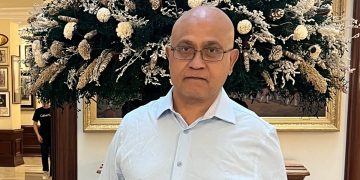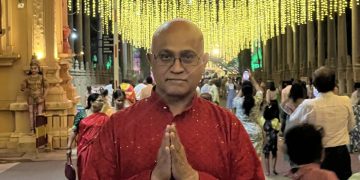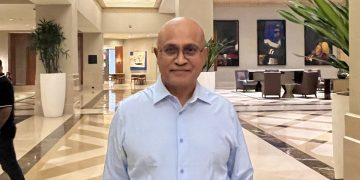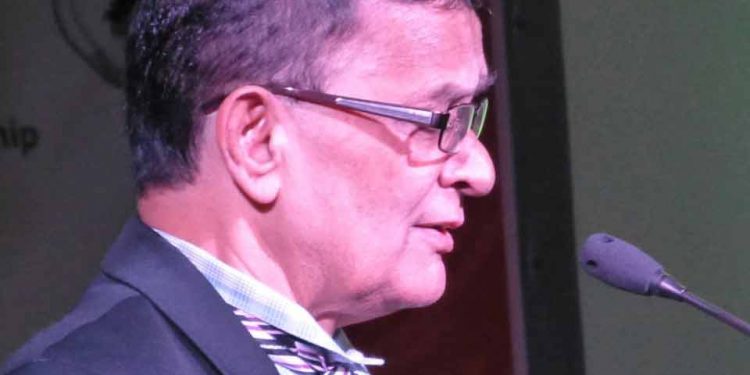I feel compelled to respond to Mr. Raphael Trotman’s letter “What Comes After,” in which he raises several issues on the need for constructive dialogue between the PNCR coalition and the PPPC. While I share his view of engagement, I do not subscribe to his line of arguments or reasoning. He mentioned, for example, that the AFC had “forcefully brought attention to the dire consequences of the ‘political ethnicization’ campaign that the Irfaan Ali led administration has embarked on since August.” A top PPPC government official rejects this vulgar mischaracterization of the PPPC’s action, and wonders how could they engage the opposition in moving the country forward with such distorted information that is designed to foment tension and conflict.
Such reckless comments are not conducive to positive engagement. The reality is that the PPPC government has been exercising its rights, but in a measured way, as all new governments of western democracies, to appoint its own political and contract workers and technical advisors. Many of those slots were occupied by PNCR/AFC operatives and the incumbents know that they had to vacate office when a new government occupies the office. I wonder if Mr. Trotman is influenced by the incendiary rhetoric of Mr. Rickford Burke who stated erroneously that the PPPC fired 1,021 of their supporters? A top government source expresses shock at this pronouncement and says that less than 300 workers were terminated. In contrast, the PNCR led government terminated over 9,000 workers (6,000 Indo-Guyanese sugar workers, 1,972 Amerindian CSOs and hundreds of Indo-Guyanese public servants and other non Indo-Guyanese who were thought to be PPPC supporters. .
Why did Mr. Trotman support those massive firings? Did he ever view those dismissals as a ‘political ethnicization’ that was carried out by his coalition government? Mr. Trotman laments; “tens of thousands of supporters of the APNU and AFC continue to feel uninvited to participate, equally and unconditionally,” in governance and that this apparent deficiency undermines the PPPC’s legitimacy. Well, it is interesting to know if Mr. Trotman believes that the PPPC supporters had similar feelings when they (PPPC) were in the opposition? Even though the PPPC identified electoral irregularities and filed an election petition, they eventually conceded that the APNU-AFC won 2015 elections and recognized their legitimacy to govern until December 2018 when the NCM was passed.
It would have been nice if Mr. Trotman had addressed the over-bureaucratization of the Public Service during their term in office (2015-2020). They expanded the public service workers’ roll by 10,000, with many of those workers having nothing much to do, while many “others were doing PNCR party work.” Numerous instances of these aberrations have been documented in the Guyana press,
Feeling entrenched in office, Mr. Trotman lashed out at Opposition Leader Mr. Jagdeo at a Parliamentary sitting in June 2017, saying that he (Jagdeo) was a ‘waste and relic that presided over a government riddled with drug trafficking and wastage of millions of dollars.’ This caustic statement has returned to haunt Mr Trotman as Mr. Jagdeo and his party was returned to government in 2020. In relation to Trotman’s allegation of ‘wastage of millions,’ he has been accused of causing Guyana to lose $(US) 55 billion in a lopsided Exxon contract deal. Nevertheless, what is interesting is that when Mr. Trotman’s party was in office, they didn’t show any eagerness to pursue meaningful engagement with the opposition. Instead, they made empty calls for talks and identified Mr. Moses Nagamootoo as their team leader. Mr. Trotman asserts that they have an “honest interlocutor,” in the person of Joseph Harmon, but herein lies a dilemma: Mr. Harmon says publicly that he does not recognize the PPPC government as legitimate.
To complicate the issue, Mr Trotman’s colleague Mr. Khemraj Ramjattan has now emerged with a preposterous suggestion that President Irfaan Ali should produce his first-degree certificate before there is any dialogue with the coalition. This is like the Tower of Babel. Mr. Trotman states one position (dialogue must not have pre-conditions set), while Mr. Granger and Mr. Ramjattan take another position (setting out pre-conditions).
Mr. Trotman posits, “one government, or one party alone, cannot effectively rule Guyana.” This statement however applies only to PNCR. Despite the PNCR’s declared position to make the country ungovernable and the recent call for a revolution, the PPPC’s governance credentials, according to pollster Dr. Vishnu Bisram, are formidable. The electorate which includes all constituencies and where no ethnic group forms a majority, voted for a party to govern the country and not for power-sharing. This WTA system is no different from other Caribbean and Commonwealth countries. There has not been a sustained call for inclusive governance in any of those states, and there is no convincing evidence that power-sharing will lead to better results. Mr. Trotman says inclusive governance (IG) is a requirement of the constitution, but he did not define this concept. As part of IG, the PPPC has already established Parliamentary Sectoral Committees, Constitutional Commissions, among others. I believe that IG for him really means executive power sharing at Cabinet level, including the rotation of the Presidency between the major political parties. Does Mr. Trotman also want opposition representation on state boards? The PNCR supporters already occupy all layers of the public service bureaucracy, except the cabinet-level and statutory boards. Perhaps Mr. Trotman should have a look at a federal system as advocated by Ravi Devi, Dr. Ramnesh Gampat, and Dr. Baytoram Ramharack to produce a system based on fair representative governance and equity. Most Guyanese agree with the need for constitutional reform, of which power-sharing should be integral. I support genuine inter-party dialogue which must be based upon the right foundation.




































































